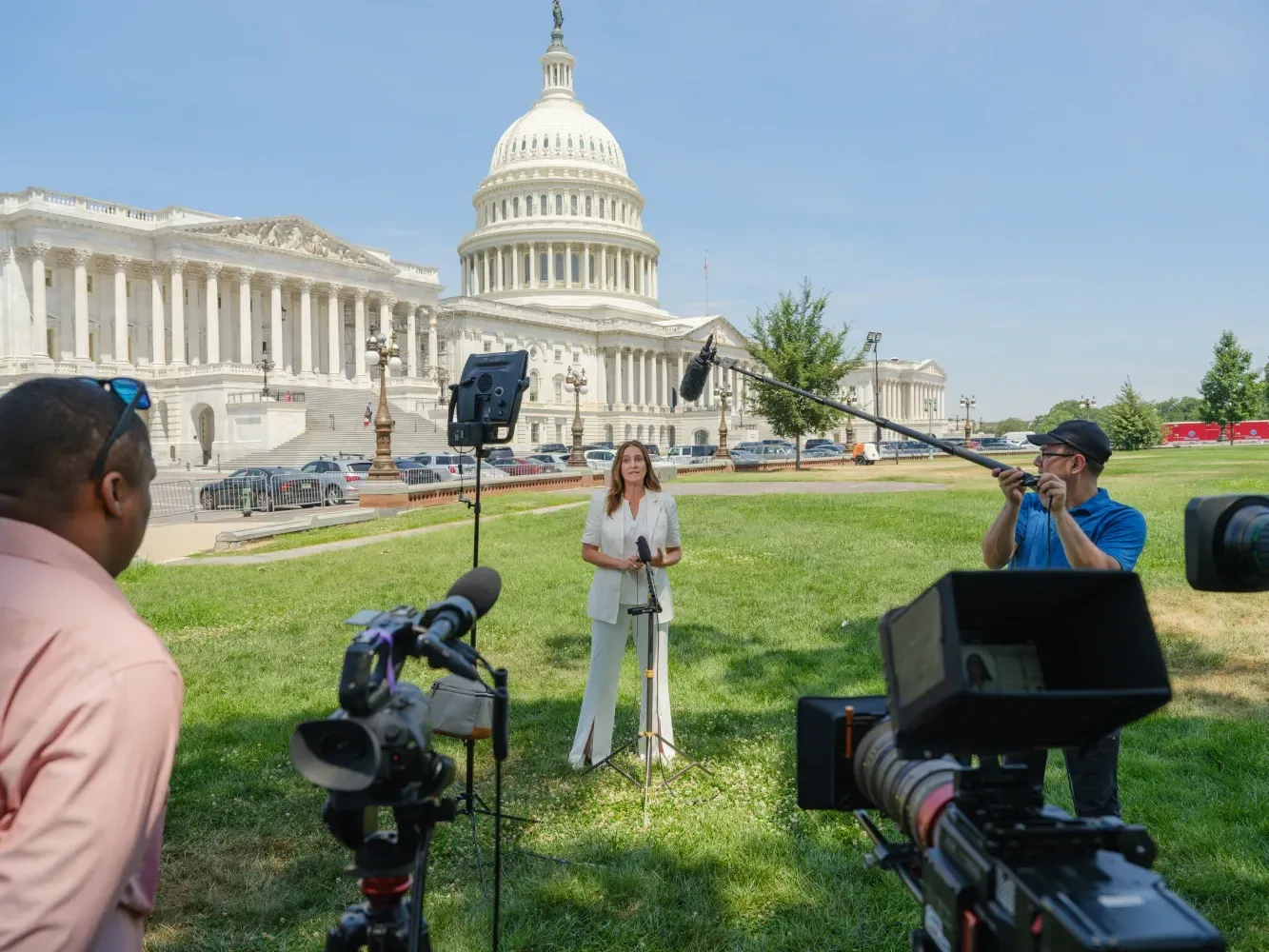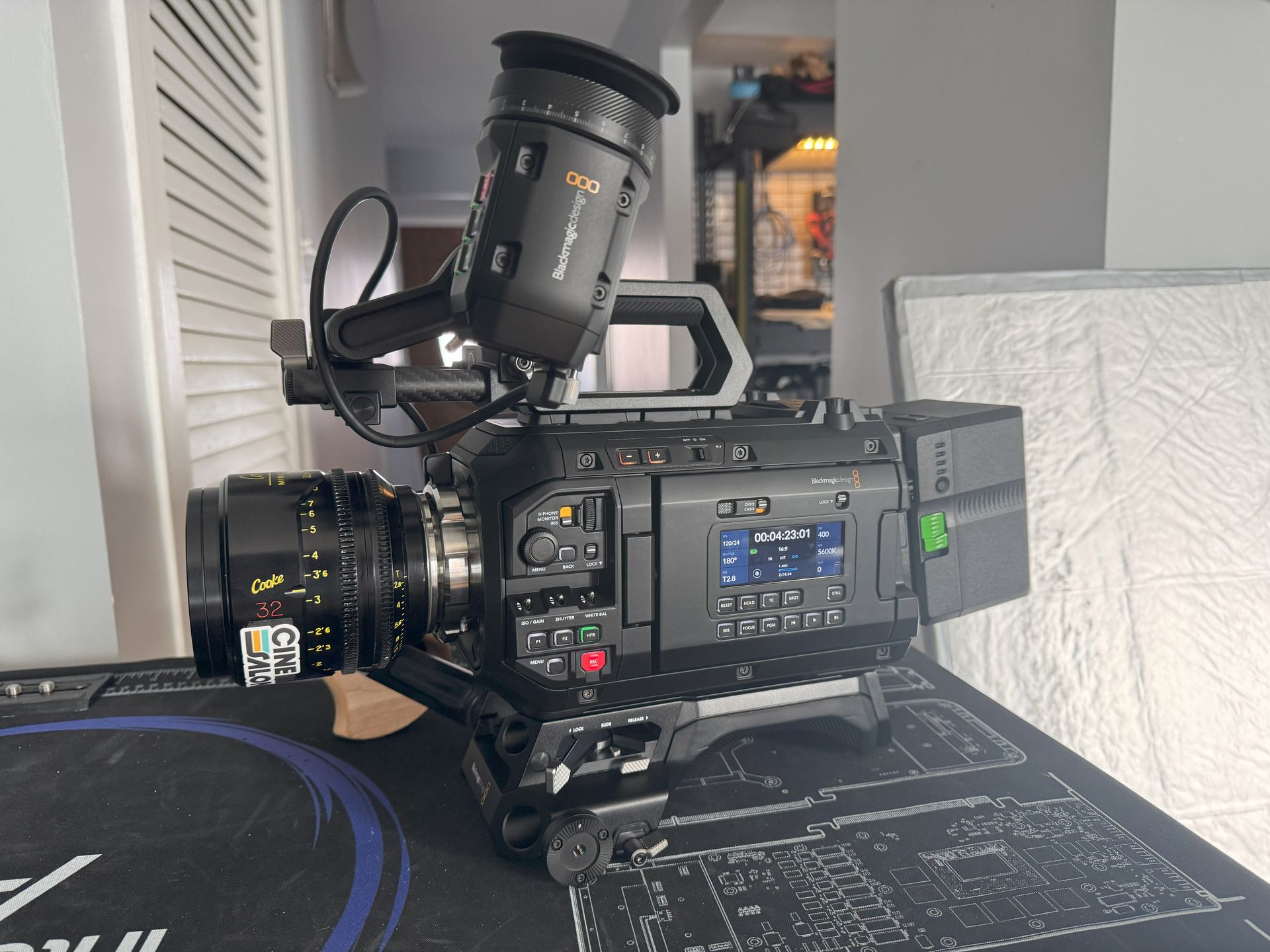Transforming a conceptualized narrative into a captivating cinematic reality on the grand screen is a truly enchanting experience. In this comprehensive guide on becoming a filmmaker, we'll explore the significance of having a clear plan and outline before embarking on your cinematic adventure.
Learn About Film
The foundation of every great filmmaker is a profound understanding of the art and craft of filmmaking. To embark on this creative odyssey, dive into the depths of film knowledge:
Resources:
• Film Schools and Universities: Immerse yourself in structured learning environments. Film schools and universities offer curated courses that cover film history, theory, and practical skills, providing a well-rounded education
• Online Courses and Tutorials: Knowledge is at your fingertips in the digital age. Explore online courses and tutorials encompassing various topics, from scriptwriting to post-production techniques. Platforms like Coursera and Skillshare host courses led by industry experts.
• Books and Articles: Delve into the written treasures of renowned filmmakers. Books by auteurs like Stanley Kubrick and Agnès Varda offer insights into their creative processes. Film journals and articles provide in-depth analyses of cinematic techniques and trends.
• Film Festivals and Workshops: Immerse yourself in the vibrant atmosphere of film festivals. Attend workshops and panel discussions led by accomplished filmmakers. These events offer a unique blend of education and inspiration, connecting you with the pulse of the industry.
Make Your Films
Theory meets practice on the filmmaker's canvas. The essence of learning lies in doing, and in the realm of cinema, your creations become your greatest teachers:
Tips
• Start Small: Begin your filmmaking journey with short films or home movies. Experiment with different genres, styles, and techniques. Every frame you capture is a step toward mastery.
• Collaborate: Filmmaking is a collaborative art. Collaborate with fellow filmmakers, actors, and crew members. Each collaboration enriches your perspective and hones your interpersonal skills.
• Embrace Feedback: Constructive criticism is the cornerstone of growth. Seek feedback from mentors, peers, and even your audience. Embrace critiques as opportunities to refine your craft.
How to Get Started in Filmmaking
Screenplay outlines
What is a Screenplay Outline?
As we embark on the exciting journey of discovering how to become a filmmaker, the screenplay outline is one fundamental aspect that can't be overlooked. But what exactly is a screenplay outline, and why is it an indispensable tool in the filmmaker's arsenal?
Importance of Having a Plan and Outline
Embarking on the captivating filmmaking path requires more than a camera and creative ideas. How to become a filmmaker begins with meticulous planning and a well-thought-out outline. Here's why these initial steps are crucial:
• Clarity of Vision: Crafting a film starts with a vision. A clear plan helps you define your vision, ensuring your story resonates with your audience.
• Structural Foundation: An outline serves as the backbone of your film. It helps you organize your thoughts, scenes, and characters cohesively, ensuring a logical flow throughout the story.
• Efficient Production: A detailed plan makes your production process more efficient. You'll know exactly what you need, where, and how to achieve your desired results.
• Budget Management: A well-structured outline aids in budgeting. It allows you to estimate costs accurately, preventing financial constraints during filmmaking.
• Effective Communication: A comprehensive plan makes sharing your vision with your team easier. It is a common reference point, fostering effective communication among crew members.
• Creative Flexibility: While planning is essential, it allows room for creativity. A solid outline provides a framework to explore innovative ideas and experiment with your storytelling techniques.
Creating a Screenplay Outline
How do you create a screenplay outline now that you understand its significance?
Start with a Working Outline
Begin with a working outline that connects your preliminary research with the gradual formation of your ideas. This initial step allows you to brainstorm and jot down your thoughts as they come to you.
Utilize Organizing Principles
Common organizing principles such as chronology (arranging events in the order they occur), cause and effect (showing the consequences of actions), and process (detailing a step-by-step sequence) can be invaluable. Use deductive (starting with a broad idea and breaking it down) and inductive (gathering evidence to form a conclusion) logic to structure your outline.
Formalize Your Outline
As your ideas take shape, transform your working outline into a formal one. Categorize the information you've gathered into subordination levels, showcasing main points, supporting arguments, and specific details. This structured approach will serve as the foundation for your screenplay.
What Makes a Great Filmmaker?
The journey towards becoming a filmmaker extends beyond the mere acquisition of technical expertise; it necessitates the cultivation of distinctive qualities and attributes that distinguish one as an exceptional filmmaker. Within this segment of our comprehensive guide on becoming a filmmaker, we will explore the defining characteristics that encapsulate excellence within this realm.
Creativity, Passion, and Attention to Detail
1. Creativity
At the core of every remarkable filmmaker is boundless creativity. It's the ability to see the world through a lens not confined by convention. Great filmmakers don't just tell stories; they create immersive worlds. Think of Guillermo del Toro's imaginative creatures in "Pan's Labyrinth" or Wes Anderson's visually distinct worlds in films like "The Grand Budapest Hotel." These directors inject their unique creative flair into every frame, leaving an indelible mark on cinema.
Passion is the driving force that propels filmmakers through the often challenging and demanding process of bringing a story to life. It drives those nocturnal editing endeavors, the tireless quest for a flawless frame, and an enduring dedication to the artistic vision. Martin Scorsese's ardor for storytelling becomes unmistakably apparent through his enduring devotion to filmmaking over several decades, yielding cinematic masterpieces such as Goodfellas and The Irishman.
2. Attention to Detail
Filmmaking is a meticulous art where every frame and every element must be carefully considered. Great filmmakers possess a relentless attention to detail. They meticulously examine every facet of their craft, leaving every detail to be noticed. Consider, for example, the meticulous set design in Stanley Kubrick's "The Shining" or the painstaking precision evident in David Fincher's camera work in "Fight Club." These directors exemplify an unwavering dedication to achieving perfection, leaving no aspect unexplored in their tireless quest for excellence.
3. Discipline and Organization
Discipline: Filmmaking is not just a creative endeavor; it's a discipline that demands structure and rigor. Staying on schedule, meeting deadlines, and adhering to budgets are essential aspects of a filmmaker's field. Legendary director Akira Kurosawa's unwavering discipline is evident in his methodical storytelling approach, resulting in masterpieces like "Seven Samurai."
4. Organization
Behind every successful film lies a well-organized production. Great filmmakers are masters of organization, ensuring that a project's moving parts align seamlessly. Consider the Coen Brothers, Joel and Ethan, renowned for their methodical preparation and keen focus on intricacies. Their cinematic works, exemplified by films like No Country for Old Men and Fargo, vividly illustrate their exceptional organizational skills in translating intricate storylines into compelling on-screen experiences.
Examples of Successful Filmmakers
To provide a more comprehensive illustration of these characteristics, let us delve deeper into the filmmakers previously discussed:
• Christopher Nolan: Celebrated for his inventive genius, Christopher Nolan's mind-bending narratives in works such as Inception compel audiences to transcend conventional storytelling norms. His passion for pushing the limits of cinematic possibilities is palpable, evident in his commitment to practical effects and mind-boggling concepts.
• Quentin Tarantino: Quentin Tarantino's contagious enthusiasm for filmmaking propels him to craft dialogue-intensive, character-driven narratives, as Pulp Fiction exemplifies. His distinctive voice and unapologetic style have established him as a pioneering figure in the industry.
• Steven Spielberg : Renowned for his meticulous approach, Steven Spielberg's cinematic works, notably Schindler's List and Saving Private Ryan, exemplify emotionally resonant storytelling. His organizational skills ensure that even the most complex scenes are executed flawlessly.
How to Get Started in Filmmaking
Having delved into the defining attributes of exceptional filmmakers, it is now imperative to transition towards practical steps to realize your aspiration to become one. In this segment of our comprehensive guide on embarking on a filmmaking journey, we shall offer actionable guidance and valuable insights to initiate your pursuit in this captivating realm.
Taking Classes in Film Production, Screenwriting, and Film History
Film Production:
Consider enrolling in film production classes to lay a strong foundation for your filmmaking journey. These courses cover the technical aspects of filmmaking and editing. Learning the ropes of production will equip you with the essential skills to bring your cinematic visions to life.
Screenwriting
The heart of any great film lies in its screenplay. Taking screenwriting classes will help you master the art of storytelling through scriptwriting. Within our guide, you will gain proficiency in structuring narratives, cultivating captivating characters, and crafting engaging dialogues. A profound comprehension of the intricacies of screenwriting is paramount in the art of fashioning a riveting cinematic history.
Film History
A deep appreciation for the history of cinema can provide valuable insights into the evolution of filmmaking techniques and styles. Studying film history will expose you to iconic films and influential directors, inspiring your creative endeavors.
Attending Film Festivals and Industry Events
Networking constitutes an indispensable facet of the filmmaking odyssey. Participation in film festivals is an exceptional avenue for forging connections with peers in the industry, prospective producers, and potential creative collaborators. The significance of this practice lies in the following reasons:
Inspiration
Film festivals showcase diverse films, exposing you to different genres, styles, and cultures. These experiences can inspire and broaden your creative horizons.
Networking
Building a network within the industry can open doors to opportunities and collaborations. You can learn from established filmmakers and find potential mentors.
Showcasing Your Work
Some festivals offer platforms for emerging filmmakers to showcase their work. It's a chance to gain recognition and feedback from industry professionals.
Practicing Your Craft
The saying "practice makes perfect" holds in filmmaking. Here's how to hone your skills:
• Create Short Films: Start small by making short films. Engaging in these projects provides the opportunity to experiment with diverse techniques and genres while accumulating valuable practical experience.
• Collaborate: Engaging with fellow aspiring filmmakers enables a mutual exchange of strengths and weaknesses, fostering a dynamic learning environment. Such cooperation has the potential to catalyze the development of distinctive and innovative projects.
Importance of Story Structure and Creating a Story Outline
Central Conflict
Identify the major conflict of your story. What is the driving force behind your narrative? This conflict will propel your plot forward.
Three-Act Structure
Adopt the traditional three-act structure with a beginning, middle, and end. Each act should have a distinct purpose in advancing the story.
Character Development
Invest time in developing your characters. Understand their motivations, flaws, and growth arcs. Well-crafted characters add depth and relatability to your film.
Resources for Filmmakers
As you set forth on your path to uncover the secrets of becoming a filmmaker, access to many resources becomes essential in furnishing you with the requisite knowledge and tools for mastery of this captivating discipline. This section will explore these invaluable resources, shedding light on how they can fortify and empower your filmmaking pursuits.
Screenplay Outline Templates
Crafting a compelling screenplay begins with a well-structured outline. Screenplay outline templates are essential tools that offer a roadmap for your storytelling. These templates provide a standardized format, guiding you through the key elements of your screenplay, including plot points, character arcs, and scene transitions. They ensure that your story maintains a coherent structure, which is essential for captivating your audience from start to finish. Online platforms and screenwriting software often offer a variety of templates catering to different genres and narrative styles.
Online Courses in Film Production, Screenwriting, and Film History
Online Courses
The digital era has revolutionized learning, making high-quality education accessible to filmmakers worldwide. Online courses cover a broad spectrum of filmmaking disciplines:
Film Production
These courses delve into the technical aspects of filmmaking, providing hands-on training in camera operation, lighting, sound recording, and post-production editing. Platforms like Udemy offer courses suitable for beginners and advanced filmmakers alike.
Screenwriting
Mastering the art of screenwriting is essential for creating engaging narratives. Online screenwriting courses teach you the intricacies of storytelling, character development, and dialogue writing. Renowned screenwriters often lead these courses, offering insights into their creative processes.
Film History
Understanding the evolution of cinema is crucial for any aspiring filmmaker. Courses in film history take you on a journey through cinematic milestones, iconic directors, and influential movements. These courses provide context and inspiration for your creative endeavors.
Collaboration in Filmmaking
Collaboration
Filmmaking is inherently collaborative, and finding the right collaborators can significantly enhance your projects:
Film Clubs and Organizations
Local film clubs and organizations provide a supportive community where you can connect with fellow filmmakers. These groups often host events, workshops, and screenings, fostering a vibrant filmmaking ecosystem.
Film Festivals and Industry Events
Beyond networking opportunities, film festivals and industry events offer platforms to discover potential collaborators. Filmmakers with diverse skills, from cinematographers to sound designers, gather at these events, providing opportunities for collaboration on future projects.
Conclusion
The internet hosts thriving online forums and communities dedicated to filmmaking. Platforms like Reddit and Facebook groups create spaces for filmmakers to share their work, seek advice, and forge connections. These digital communities transcend geographical boundaries, allowing you to collaborate with individuals worldwide.

Get total clarity on your video marketing and paid media with our FREE comprehensive data audit.







